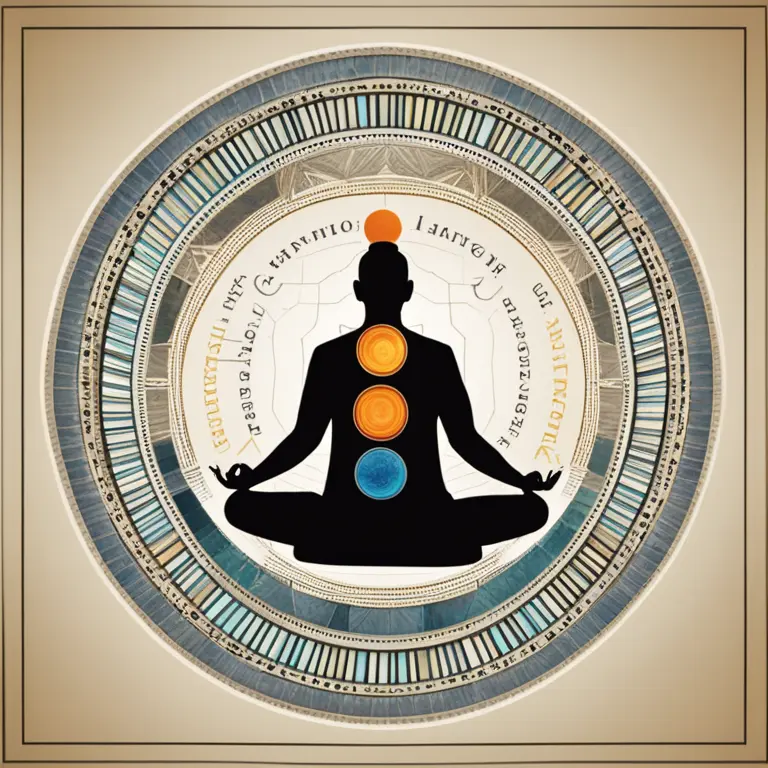
The Calm Within: How Meditation Reduces Stress
Discover the powerful connection between meditation and stress relief, and how this ancient practice can lead to greater tranquility in your daily life.
article by Hina Kurosawa
The Stress Response and Meditation
Stress is a universal human experience, often described as a feeling of being overwhelmed or unable to cope with mental or emotional pressure. The human body responds to stress by activating the sympathetic nervous system, releasing a flood of stress hormones like cortisol and adrenaline. This is where the ancient art of meditation steps in as a solution. Unlike other stress-reduction techniques, meditation has a unique impact on our physiology, promoting a state of restful awareness and reducing the body’s stress response. By cultivating mindfulness, meditation helps practitioners observe their thoughts and feelings without judgement, thereby diminishing the impact of stressors.

Scientific Backing of Meditation's Benefits
Over recent years, a burgeoning body of research has shed light on how meditation exerts its calming effects. Studies have revealed that regular meditation practice can lead to alterations in brain structure, particularly within areas associated with attention, emotional regulation, and self-awareness. Neuroimaging scans have shown increased activity in the prefrontal cortex, decreased amygdala response (the area of the brain associated with fear and emotion), and enhanced connectivity between brain regions. The implications of these findings are profound, suggesting that meditation could offer a buffer against the stresses of modern life.

Reduced Stress for Improved Health
It's well-documented that sustained stress can contribute to a host of health issues, including heart disease, diabetes, depression, and a weakened immune system. Meditation, by lowering stress levels, can therefore contribute to overall health and well-being. Mindfulness meditation, in particular, has been shown to decrease the inflammatory response caused by stress, reducing the risk of stress-related illnesses. By incorporating a consistent meditation practice into one's daily routine, individuals are likely to experience an improved quality of life, with reduced stress-related symptoms and enhanced resilience.

Accessibility and Inclusivity of Meditation
The modern meditation movement has made the practice more accessible than ever. With an abundance of digital applications, online courses, and community workshops designed for every age group and lifestyle, learning to meditate has become remarkably convenient. The inclusivity of meditation is also one of its greatest strengths; there are no prerequisites to begin, no special equipment needed, and techniques can be personalized to suit individual needs. Whether someone chooses guided meditations, mindfulness-based stress reduction (MBSR), or transcendental meditation, the practice can be tailored to fit into any schedule.
Meditation in the Corporate Sphere
Recognizing the therapeutic value of meditation, many corporations have begun to incorporate mindfulness training into their employee wellness programs. A direct response to the growing rates of burnout and stress in the workforce, companies are offering meditation sessions as a means to improve productivity, creativity, and job satisfaction. By 2024, the rise of corporate wellness programs has signified a shift in organizational priorities, acknowledging that a stress-free employee is not only happier but also more effective and engaged.
Individual Empowerment Through Meditation
Meditation is not merely a passive act of sitting quietly; it’s an active process of gaining control over one's own mind and reactions. Individuals who regularly practice meditation often report feelings of empowerment and autonomy. They become adept at managing their stress levels and are less likely to feel helpless in the face of life's challenges. As the practice of meditation continues to spread, society as a whole stands to benefit from a greater emphasis on self-care and mental wellness.
Published: 1/24/2024
Modified: 1/24/2024
More predictions
Come back here soon to learn more about yourself and your future


Effective Meditation for Contemporary Life
Discover the meditation methods that best suit the fast pace of contemporary life and how they enhance mental and emotional well-being.


Meditation Techniques for Individuals With ADHD
Discover effective meditation practices tailored for individuals with ADHD to improve focus, reduce hyperactivity, and foster a sense of calm.


The Most Effective Meditation Techniques for Harmony
Discover the potency of various meditation practices tailored for spiritual harmony and self-mastery as we navigate the diverse landscape of mindful tranquility.